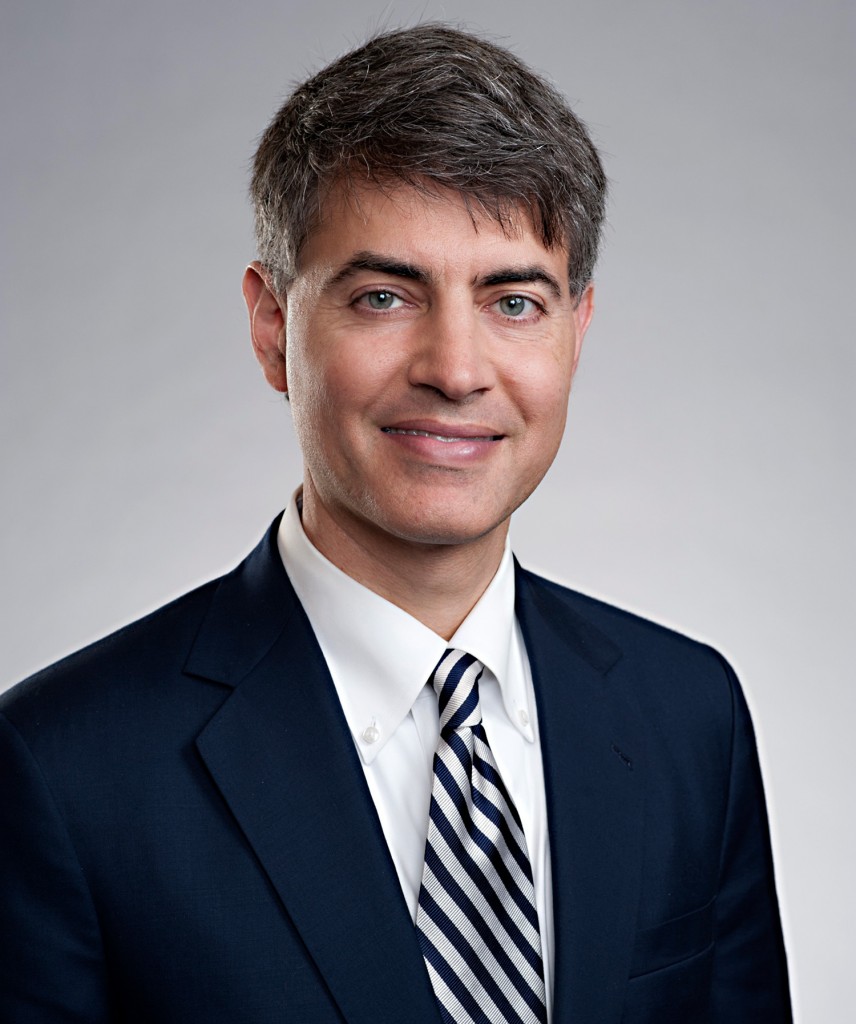Gibson Vance installed as 147th President of the Alabama State Bar

Montgomery attorney Gibson Vance has begun his term as President of the Alabama State Bar. Vance, a principal at the Beasley Allen Law Firm, was installed at the Bar’s Annual Meeting on June 25, 2022. During his first speech as president, Vance explained his passion for serving the Bar and its members. “The work we do matters; the message we deliver matters; and the contribution we can make this year matters. Together, we can truly make a difference in the lives of our members,” said Vance. His presidential initiative is called the Drive for Five. The program will provide five free hours of counseling sessions from a licensed counselor in Alabama. “Whether a lawyer is facing mental health issues, substance abuse or alcohol addiction, or experiencing suicidal thoughts, the attorney can call our 1-800 number and receive confidential help. No one at the Bar will ever know an attorney has used this service. As I visit every circuit in the state, I hope to drive home the message that to be a good lawyer, one must be a healthy lawyer,” added Vance. The 1-800 number and program offering the counseling sessions will begin early next month. Born in Troy, Alabama, and raised by his mother, who was a schoolteacher, Gibson worked his way through Troy University and Thomas Goode Jones School of Law. While attending Jones, he was elected Student Bar President. For the last 22 years, he has been a partner at Beasley, Allen, Crow, Methvin, Portis, and Miles, PC. Gibson has had the opportunity to handle cases throughout the state. He continues to support Troy University as president pro tempore of the school’s board of trustees. Gibson has served in many leadership capacities at the Alabama State Bar, most recently as President-Elect from 2021-2022 and Vice President from 2020-2021. He also served as a Bar Commissioner representing the 15th Judicial Circuit and has chaired and been a member of numerous committees and task forces, including the Alabama Lawyers Care Task Force and the Elections, Ethics, and Government Relations Committee. Gibson is married to Kate Vance, and they have two sons, Carter and Andrew.
Paul DeMarco: Unpredictable U.S. Senate races in Alabama now the new normal

So the party primaries are over in Alabama and Katie Britt is now the Republican nominee for the United States Senate. We could say this race was one for the history books, but candidly so have the last three U.S. Senate elections in Alabama. It used to be that Senate contest came along rarely in Alabama, but the past five years have proven otherwise. First, there was the 2017 special election with the Republican Primary between then-Attorney General Luther Strange that ended with former Alabama Supreme Court Justice Roy Moore prevailing. The general election that year had the eyes of the Nation watch Moore then go on to lose to Democrat Doug Jones. The 2020 election then came when former Auburn Football Coach bested former Senator Jeff Sessions for the Republican nomination. Coach Tuberville ousted then-Senator Doug Jones from his seat to return the seat to Republican hands. There have been tens of millions spent on races to represent Alabama in the United States Senate in the past five years, and this current election is still not over. However, count on Republican Katie Britt winning in the fall and being the next United States Senator to represent Alabama. We cannot predict the next Senate race in Alabama, but based on recent history it will be another roller coaster ride for both candidates and state voters. Paul DeMarco is a former member of the Alabama House of Representatives and can be followed on Twitter @Paul_DeMarco.
Robyn Hyden: We can’t wait another decade: It’s time for Alabama to expand Medicaid

It’s been a decade of missed opportunity. On June 28, 2012, the U.S. Supreme Court ruled in NFIB v. Sebelius that Alabama and other states were not required to implement the Affordable Care Act fully. The decision declared that states could opt out of expanding Medicaid to provide health coverage to adults who have low incomes and could not otherwise afford insurance. Despite the ruling, a generous offer remained on the table: The federal government would fund Medicaid expansion in its entirety for the first three years and cover 90% of the cost thereafter. Still, Alabama sat by and did little even as 17 of our hospitals have closed since 2010. We watched with no response as more than 300,000 of our friends and neighbors – folks who make too little to afford private insurance but too much to qualify for our bare-bones Medicaid program – struggled to afford needed health treatments or simply went without care. We waited for help to come as major health indicators – including labor force participation rates, maternal mortality rates, substance use disorders, and mental health outcomes – continued to languish. During those ten years, we witnessed 38 of our neighboring states take the deal that we did not. The results speak for themselves. While many of Alabama’s rural hospitals closed, Arkansas expanded Medicaid back in 2014 and retained their rural hospitals and providers. While more than 600 Alabamians die every year due to lack of health coverage, Louisiana expanded Medicaid back in 2016 and saw a reduction in premature deaths. And while Alabama lost out on more than $1 billion in additional tax revenues that would have strengthened our economy and supported our long-term economic success, our federal tax dollars went to fund health care in other expansion states, including Kentucky, Missouri, Oklahoma, and Virginia. The good news is this: A new Medicaid expansion deal is now on the table, and it is even better financially than before. The American Rescue Plan Act offers additional incentives to states that have yet to expand Medicaid to ensure we don’t miss out. With these incentives, Alabama could more than afford to provide coverage for those 300,000 friends and neighbors who are struggling to make ends meet and pay for health care. Evidence is strong that states that build a strong social safety net, including more expansive Medicaid programs, enjoy faster economic recovery from recessions than those that don’t. And these federal funds will provide the most benefit to those most harmed during the COVID-19 recession. Medicaid expansion also will help K-12 schools and universities across Alabama by generating significant increases in income and sales tax revenues – the funding sources most at risk of decline in times of economic instability. When we look back on this moment ten years from now, I’d like for the story of Medicaid expansion to be one of an embraced opportunity. Let us say Alabama’s leaders brought billions of dollars back home to invest in our health care, our economy, and our people. Let us say we weathered the ups and downs of economic instability and came out stronger. And let us say we did it all because of leaders who had the courage, the vision, and the foresight to invest today in the Alabama of 2032. Robyn Hyden is executive director of Alabama Arise, a statewide, member-led nonprofit organization advancing public policies to improve the lives of Alabamians who are marginalized by poverty. Arise’s membership includes faith-based, community, nonprofit, and civic groups, grassroots leaders, and individuals from across Alabama. Email: robyn@alarise.org.
Scott Stadthagen: Joe Biden and his war on women

Last week, I watched in disgust as President Joe Biden vowed to expand Title IX to include biological males in female sports under the label of “transgender acceptance.” The truth is that Biden is not attempting to expand Title IX; he is launching a war to destroy it. For nearly 50 years, the participation in women’s sports has increased exponentially, largely due to Title IX. Female athletes are now competing at the professional level in basketball, golf, and soccer, just to name a few. Thousands of female athletes are receiving a college education as the result of athletic scholarships. All of these opportunities will be harmed by any edict mandating that biological men, posing as women, be allowed to compete in women’s sports. These men will rob female athletes, not only of victories, but of scholarship opportunities. The number of girls who will be unable to pursue a college education due to being “beaten out” by a biological male posing as a female is yet unknown, but it will happen if Biden gets his way. Last year, I sponsored and passed legislation to protect the integrity of women’s athletics in Alabama. The bill, which was signed by the Governor and is now law in our state, prohibits the intrusion of biological males in women’s sports. In Alabama, we are doing everything possible to protect women’s rights from a Democrat Party and a Presidential Administration that seems hell-bent on ending fair competition in women’s sports. In Alabama, we will fight to ensure that doesn’t happen, and I am ready to take on that fight for my daughter, my constituents, and for the love of sports. Scott Stadthagen is a Representative for Alabama House District 9.
Rep. Robert Aderholt announces grant for Northwest Alabama Regional Airport

Today, Rep. Robert Aderholt announced $ 2,920,000 in grant funding for the Northwest Alabama Regional Airport. “I’m pleased to announce that the Northwest Alabama Regional Airport, located in Muscle Shoals, will receive a grant totaling almost $3 million to improve both safety and runway lighting,” Aderholt stated. The funds will be administered by the U.S. Department of Transportation as part of the Wendell H. Ford Aviation Investment and Reform Act for the 21st Century. Aderholt emphasized the importance of infrastructure funding and how it impacts Alabama. “As a member of Congress, and specifically a member of the House Appropriations Committee, I strongly believe in these types of investments in our infrastructure. Northwest Alabama Regional Airport is one of our state’s most important airports. Not only does the airport provide air services for private aircraft, but is also a destination for Contour Airlines, providing access for Shoals residents to the entire world,” Aderholt continued. “I have always supported traditional investment in our nation’s infrastructure, as it has an immediate and direct impact on the local economy.”
Three projects announced for North Alabama funded from Tyson spill lawsuit

Three projects funded by a settlement with Tyson farms will give recreational boaters, paddlers, and fishermen better access to the Mulberry and Sipsey Forks of the Black Warrior River. On Saturday, local leaders visited sites in Colony and Garden City in Cullman County and the Forks in the River site near the Walker County town of Sipsey – and offered details unique to all three projects. The funding comes from a state lawsuit against the Tyson company in the wake of an illegal wastewater discharge at the company’s facility in Hanceville. The spill occurred on June 8, 2019, when a pipe failed at the River Valley Ingredients poultry processing facility in Hanceville, sending tens of thousands of gallons of partially treated wastewater into the river. The spill killed an estimated 175,000 fish and damaged the river’s ecosystem. “These community enhancement projects are the result of the dedicated teamwork of legal staff from the Attorney General’s Consumer Interest Division, and our partners at the Alabama Department of Conservation and the Alabama Department of Environmental Management,” said Attorney General Steve Marshall. “As I said we when announced this settlement last August, this is another example of a Consumer Protection case done well – the money is going exactly where it ought to go – not to the state coffers or outside counsel, but to the impacted areas. It is all the more rewarding to finally see these recreational access projects come to life to benefit the impacted communities.” As part of the settlement of the lawsuit, the AG Marshall created a Restitution Fund Oversight Committee to oversee the projects that are designed to enhance the State’s natural resources, increase recreational opportunities, and benefit the environment and public health in the impacted areas. Alabama Department of Conservation and Natural Resources Deputy Commissioner Ed Poolos will serve as chairman of this committee, which selected the projects. The projects include: • Forks in the River, near Sipsey: Expand parking area and construct a dock, pavilion, and restroom facility. • Town of Colony access: Construct a gravel road and parking area, which will give local residents direct access to the river for the first time. • Garden City Park: Riverfront clean-up with new kayak launch area, add restroom facility, and create hiking trail. “I would like to express my deep appreciation to every member of this committee. They have all worked diligently as a team, to get us to this point. I’m very pleased that we can now announce these three initial sets of projects, with you having our assurance that many more will follow over the coming months,” Poolos stated. “We believe these projects will provide tremendous and long-lasting benefits for Alabama’s citizens impacted by the wastewater spill.”
Justices side with doctors convicted in pain pill schemes

The Supreme Court on Monday ruled for doctors who face criminal charges for overprescribing powerful pain medication in a case arising from the opioid addiction crisis. Justice Stephen Breyer wrote for the court that prosecutors must prove that doctors knew they were illegally prescribing powerful pain drugs in violation of the federal Controlled Substances Act. The ruling came as the U.S. has been seeing record numbers of drug overdose deaths, many from the highly lethal opioid fentanyl. Evaluating the convictions of two doctors who are each facing more than two decades in prison, the justices ruled on a subject on which advocates for patients and doctors had urged the court to distinguish between criminal behavior and medical errors made in good faith. It did so in the ruling. Prosecutors, Breyer wrote, “must prove beyond a reasonable doubt that the defendant knowingly or intentionally acted in an unauthorized manner.” The justices ruled unanimously for the doctors, though only six endorsed Breyer’s standard for conviction. Fear of aggressive prosecution already has led doctors to avoid prescribing opioids “against their best medical judgment,” the National Pain Advocacy Center told the court in a written filing. But the justices did not throw out the convictions of two doctors whose appeal was heard in February. Instead, it ordered federal appeals courts to take a new look at their cases. The court ruled on appeals from Xiulu Ruan of Mobile, Alabama, and Shakeel Kahn, who practiced medicine in Ft. Mohave, Arizona, and Casper, Wyoming. Ruan is serving a 21-year federal prison term. Kahn is in prison for up to 25 years. They will get another chance to argue that their convictions should be overturned. Ruan and a partner, James Couch, were convicted of overprescribing medications at their Physicians Pain Specialists of Alabama clinic and a pharmacy. The two doctors “enriched themselves through a long-running scheme of unlawfully issuing prescriptions for addictive and potent controlled substances, in response to their own financial incentives rather than the legitimate medical needs of their patients,” Solicitor General Elizabeth Prelogar, the Biden administration’s top Supreme Court lawyer, told the court in a written filing. They grossed $20 million between 2012 and a raid in 2015, prosecutors said. In 2014, they wrote 66,892 prescriptions, prosecutors said. Kahn was convicted of conspiracy to unlawfully distribute and dispense controlled substances resulting in death, including oxycodone, an opioid pain reliever, and fentanyl, a synthetic opioid. Kahn “routinely performed only a perfunctory examination — or no examination at all — before prescribing controlled substances for a patient,” the Justice Department said in a Supreme Court brief. Jessica Burch, of Lake Havasu City, Arizona, was a patient of Kahn’s who died from an overdose in 2015. Kahn wrote nearly 15,000 prescriptions for controlled substances over six years, totaling nearly 2.2 million pills, prosecutors said. Nearly half were oxycodone, they said. Republished with the permission of The Associated Press.
Price of planned Mobile River bridge swells to $2.7B

The latest plan for a new bridge and revamped Interstate 10 to ease traffic congestion on the Gulf Coast at Mobile shows the cost has swelled to $2.7 billion after years of disputes and delays, an increase of more than 25%. The project, which includes a tall bridge over the Mobile River and a replacement of I-10 over Mobile Bay just east of downtown, could be complete by late 2028 if work begins next year, according to a report released Friday by the Alabama Department of Transportation. Passenger vehicles would pay a maximum toll of $2.50, and trucks would pay as much as $18, the report said, but free routes would still be available. The project was projected to cost $2.1 billion in 2019, but opposition over plans to charge cars one-way tolls of as much as $6 led to delays. The state’s new report on the on-again, off-again project blamed inflation for the price hike. The project would be funded with $250 million from the state, $625 million in federal grants, $1.2 billion in bond financing, and $1.1 in federal loans, the report said. Revenue from tolls would be used to pay the debt. Almost 100,000 cars and trucks use the current system of tunnels and bridges that cross Mobile Bay and the Mobile River, leading to congestion on roads that were designed for only 35,000 vehicles daily, the report said. The improvement is needed to allow for growth, improve safety and hasten evacuation during hurricanes, the report said. After looking dead, the project was resurrected in December after officials in Mobile and Baldwin County approved a framework they said was needed to improve traffic flow on the Gulf Coast for the project. The heavily traveled east-west route links Jacksonville, Florida, with Los Angeles. Republished with the permission of The Associated Press.


